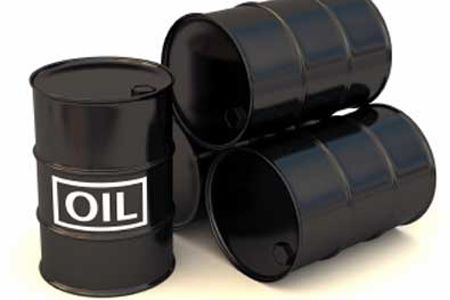India To Pay For Iran Crude In Rupees
By Press TV
13 January, 2012
Press TV
 In the wake of the US decision to impose fresh sanctions against the Islamic Republic that would target its oil exports, India announces plans to pay for the Iranian crude it imports in rupees.
In the wake of the US decision to impose fresh sanctions against the Islamic Republic that would target its oil exports, India announces plans to pay for the Iranian crude it imports in rupees.
A senior Indian government official, speaking on condition of anonymity, said the issue will be addressed when a multi- disciplinary team visits Tehran on January 16 to discuss uninterrupted supply from the major oil producer, the Press Trust of India reported on Sunday.
Under the proposal, the National Iranian Oil Company (NIOC) will open a rupee account with Indian banks, and can use the money to purchase non-strategic commodities like railway imports.
India satisfies about three-quarters of its crude demands through imports; and Iran is its second-largest supplier after Saudi Arabia.
The South Asian country currently pays USD 1 billion every month to Iran for the 370,000 barrels per day of crude oil it purchases from the Islamic Republic. India uses Turkey as a conduit in order to pay for Iranian crude.
India has been looking for an alternative payment mechanism for crude from Iran after the Reserve Bank of India in December 2010 announced that payments for Iranian crude oil imports would have to be settled outside the existing Asian Clearing Union (ACU) mechanism.
The Asian Clearing Union (ACU) mechanism involves the central banks of Bangladesh, Bhutan, India, Iran, Maldives, Myanmar, Nepal, Pakistan, and Sri Lanka.
Under the mechanism, imports by the nine nations are settled every two-months with every member paying for imports after netting out its exports among the union.
In February 2011, Iran and India agreed to set up a new mechanism for the oil payments using euros through the Hamburg-based European-Iranian Trade Bank AG (EIH Bank).
But under the US excessive pressure, Germany soon stopped accepting money from India for onward transfer to EIH Bank, sending India to the doorstep of Turkey.
On Thursday, India's National Security Advisor Shiv Shankar Menon held talks with officials from the Indian ministries of finance, petroleum and external affairs as well as the Reserve Bank to explore avenues following indications that Turkey's state-run Halkbank would stop settling oil payments on behalf of India.
"There are chances that Turkey may come under pressure after a fresh round of US sanctions imposed on Iran," an Indian official said.
On December 31, US President Barack Obama signed into law fresh economic sanctions against Iran's Central Bank in an apparent bid to punish foreign companies and banks that do business with the Iranian financial institution.
The bill requires foreign financial firms to make a choice between doing business with Iran's Central Bank and oil sector or with the US financial sector.
The legislation will not go into effect for six months in a bid to provide oil markets with time to adjust.
Meanwhile, energy experts say the sanctions could lead to a major hike in crude oil prices and disrupt the interests of the US and its allies that depend on oil imports from Iran.
Facing major economic troubles, the United States is reportedly the world's largest debtor nation.
© Copyright 2011 Press TV
Also Read
What’s Really Going On In The Straits Of Hormuz
By David Malone
I think the stand-off with Iran in the Straits of Hormuz over sanctions is as much to do with the moves to replace the dollar as anything else. The stand off is as much with China and its allies as it is specifically with Iran. The US is testing China’s nerve and the solidity of its network of bilateral currency settlement agreements. We are seeing military power deployed to counter economic power. I think the US will lose. Depending on the nature of its loss we could see a precipitate decline in the standing of the dollar as global reserve currency
Comments are not moderated. Please be responsible and civil in your postings and stay within the topic discussed in the article too. If you find inappropriate comments, just Flag (Report) them and they will move into moderation que.


